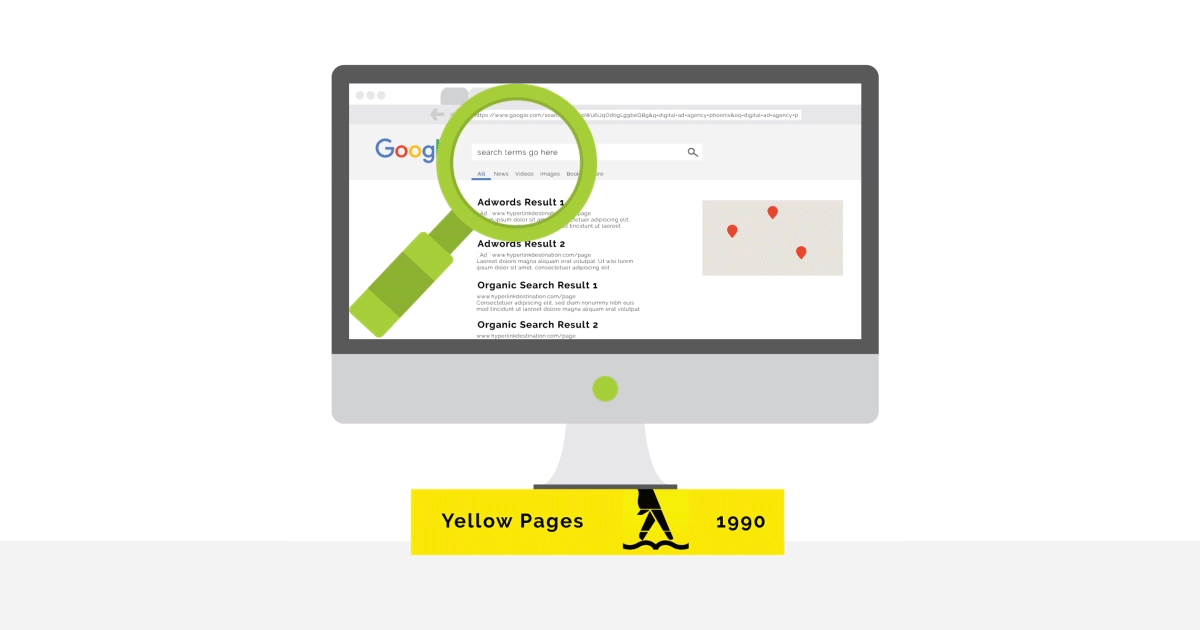
Understanding the Basics of Search Engine Marketing
Search engine marketing (SEM), which includes pay-per-click (PPC) and search engine optimization (SEO) gets a great deal of attention in today’s digital marketing landscape. It’s not overly complex but it’s also not so simple that you can execute search engine marketing properly without help from an outside entity. Typically that’s a digital ad agency or in some cases it’s from a company that specifically provides “search” services.
Unfortunately, the lack of understanding makes it easy for some companies to spend your money in their best interest, not yours.
It’s important for business owners or marketers to understand the basics of search engine marketing. That way they won’t be taken advantage of or mislead as to what search is, what it can do for their business, and how it should be properly executed.
Search engine marketing is the byproduct of a digital age that essentially made the yellow pages obsolete. Today, most consumers under 70 go to their computer or their smartphone to find a business. Both computers and smart phones have browsers with search engines that are designed to give users the “most accurate” results for what they are seeking. Google is the dominant search engine with a net market share of 82% of all searches in the United States. Bing and Yahoo also both offer search platforms as do a handful of other players.
It’s interesting to note that Google boasts a 96% net market share of mobile search in the U.S. These are searches that are performed on a smartphone or tablet; Google for the win on mobile search.
This is how it works:
There are two types of search engine listings: paid and organic.
• Pay-per-click is a bidding process where marketers “bid” on specific search terms and pay if and only if their ad gets clicked on.
• Organic search is determined by the relevancy of your site content comparative to the given search term(s).
The consumer types in words that describe what they are searching for. Depending on what the consumer “searches”, your given company may or may not show up in the search results. Certain companies will show up at the top. These are paid advertisers that score high under three core sets of criteria (ad rank): the amount of their bid, the relevance of their content, and the click-through rate of the search ad being shown.
Organic search is just what it sounds like. If your website has content that is highly relevant to the search term(s) and you have kept your site properly optimized for search, you will show up in the organic portion of the search in question.
The higher up, the better and that’s no joke.
Research shows that consumers tend to make their search selection in that organic grouping on the first page of search 71% more often. That’s real money depending on what you’re selling. That’s optimal for any company as you are not bidding on ad space, you essentially are just occupying the hard-earned and well-deserved high ground you have for doing things right.
Google stacks as many as four paid advertisers, ten organic positions and then three paid advertisers at the end of each page. This does not include local listings, image/video results, news, or featured snippets. Bing is pretty much the same and Yahoo can vary slightly from Google’s paid to organic layout.
So, to circle back on what we’ve covered today. Pay-per-click is where you bid on search terms relevant to your company, product, or service. Cost is directly correlated to the competitiveness of the search term. Organic search is a search engine’s way of rewarding relevant content to the provider and the consumer who is seeking said company, product or service.
A good digital ad agency can and should offer solutions for both paid search and optimized website content.
At ReThinc, we partner with a research company that provides us with important search data like bidding prices, specific search terms, and search volume. This helps us to determine the correct strategy, page content, and budgets for our clients’ search engine marketing campaign.
As you can see, search engine marketing has some level of complexity. That being said, there are few if any more effective means of marketing. Essentially you are putting your brand in the direct path of the consumer who is specifically looking for you.
That my friends, is the very definition of marketing success.
I hope this has helped you to understand search and how it works. Search engine marketing, done right, does require marketing expertise. That expertise should get you as efficient placement as possible on the terms you purchase and it should also include work to improve your page content as well.
If you’d like to learn more about ReThinc Advertising, type “digital ad agency in Phoenix” in your web browser, we usually show up on the first page in the organic “non paid” section. If you want to know how we did that, shoot me a note at ed.olsen@rethincadvertising.com.



